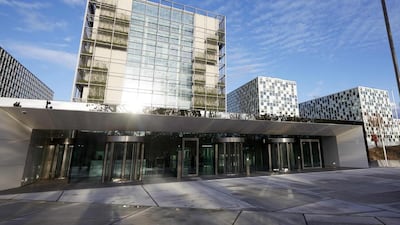Ruth Bader Ginsburg, the United States Supreme Court Justice, created a controversy in 2012 that involved Egypt and South Africa. When asked what model Egypt should look at in drafting a post-revolution constitution, the US justice didn’t cite her own country’s constitution. Rather, she cited South Africa’s post-apartheid constitution as the model she would choose. Many constitutional scholars were taken aback and then came around to Justice Ginsburg’s perspective.
The South African constitution, enacted in 1997, embodies the young democracy’s transition from minority domination to inclusive democracy. South African citizens have legal recourse to demand the government take action on economic matters and submit to a system of checks and balances. Along with the German constitution, South Africa has one of the world’s most progressive sets of fundamental principles or precedents. The document is arguably the most profound repudiation of colonialism on the continent, for it shows how a people so long brutalised by colonial practice are able to transform themselves into a progressive democracy. But unlike Germany, South Africa’s constitution is under threat.
The most recent threat comes with the country’s surprise announcement last Friday that it will exit the International Criminal Court (ICC). In announcing the decision, justice minister Michael Masutha noted that the ICC has made it more difficult for South Africa to pursue peace and security efforts across Africa because the court strips leaders of their diplomatic immunity. Thus, if a leader with an ICC arrest warrant wants to do business with South Africa, the country can’t freely pursue a prospective deal.
Mr Masutha alluded to a visit by Sudan’s president Omar Al Bashir to Johannesburg last year. As a signatory to the Rome Statute that governs the ICC, South Africa was required to act on an ICC arrest warrant for Mr Al Bashir. South African president Jacob Zuma refused and instead had his government begin the process of exiting the ICC after a wave of international criticism. Mr Zuma’s reaction was all the more surprising given that South Africa both signed the Rome Statute in 2002 and ratified the ICC treaty with a domestic law in 2004, named the ICC Act.
According to Mr Zuma’s justice ministry, this episode highlights how the ICC hampers South Africa’s ability to carry out economic foreign policy objectives because the court has targeted a number of African leaders with war crimes charges. Additionally, the court is overly focused on African leaders. In place of ICC membership, South Africa has said it will focus on human rights issues and efforts to bring war criminals to justice through the African Union, which has its own court on human rights.
How will the decision to leave the ICC further the continued erosion of democratic safeguards in South Africa? Since the treaty to join the ICC was made by a parliamentary vote, the government must also obtain approval to leave the body. But the exit announcement was made without parliamentary approval. Mr Masutha subsequently announced the government will prepare a bill for a parliamentary vote on leaving the ICC. But the continued damage to democratic standards by the current government is hard to ignore. Coupled with Mr Zuma’s continuing attempt to gain control over the finance ministry – which I wrote about last week – the foundation of South Africa’s system of governance is under attack.
The decision will have a serious effect on the ICC’s mandate on the continent. Not only would a South African exit create division on the continent – with some countries electing to remain in the ICC and others choosing to leave – but it could be used to entrench criticism that the ICC unfairly targets Africa. Powerful countries such as the United States and Russia have refused to ratify the Rome Statute, while other countries such as Israel effectively ignore ICC rulings with near complete impunity. But the idea that the ICC is extending an “imperialist agenda”, as many African critics claim, missed the mandate of the court in the first place.
Exasperating colonial understandings of western imperialism might strike a chord with some South African politicians who remember how the fight against apartheid was draped in anti-imperialist, revolutionary thought, but it ignores contemporary South African reality. After apartheid ended, the country set about the remarkable task of building from scratch a democracy that enshrined protections for human and civil rights. The constitution is one manifestation, and so was the ICC Act of 2004.
The ICC is deeply flawed, and criticism that it drives a western agenda hold merit, but that doesn’t mean the body should simply be ignored. Rather, South Africa should use its clout as a young democracy with an incredible history of struggle to reform the body from within and represent African interests in the court.
The example South Africa set in its transition from apartheid is admired across Africa and the world. Should it leave the ICC it may set an equally strong example, but one that may have dangerous ramifications for the protection of human and civil rights. If South Africa is serious about ending western influence in Africa, cosying up to warlords and leaving the ICC will do little to that end.
An ICC exit will not be an action against the violence that underpins western imperialism, as some supporters of the decision claim, but one that supports the violent products of the colonial legacy. The prudent way to stand up to the West’s violent legacy in Africa is through the creation of progressive societies that are united in confronting human rights problems through international bodies such as the ICC.
jdana@thenational.ae

